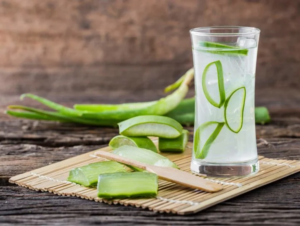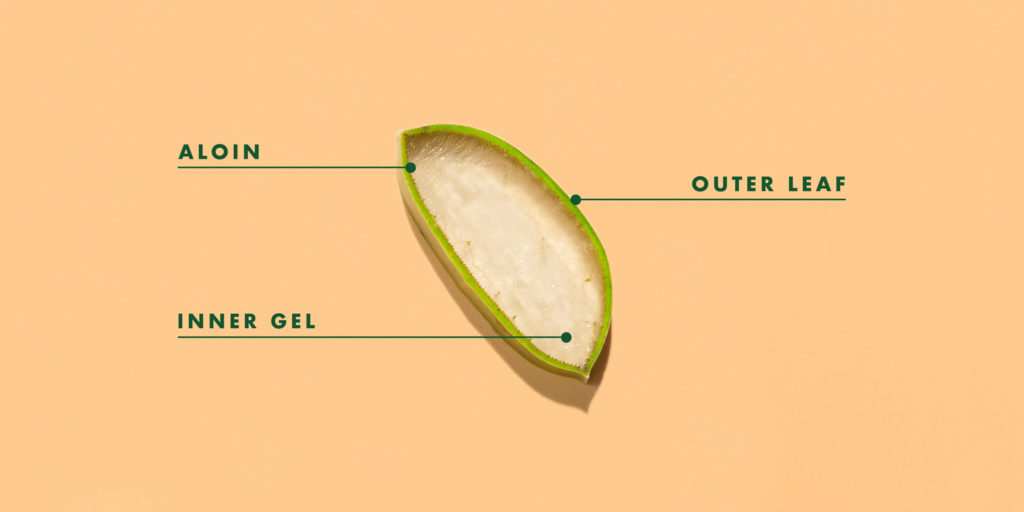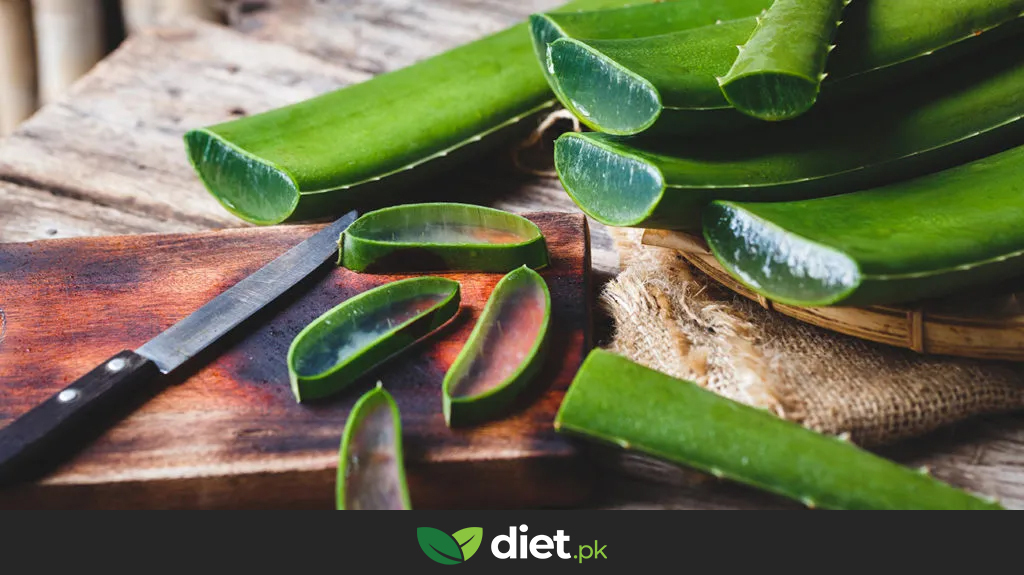Should You Be Eating Aloe Vera?
Aloe Vera – An Overview
Aloe vera, a succulent plant known for its healing properties, has been used for centuries in traditional medicine. While it is commonly used topically to soothe sunburns and skin irritations, the consumption of aloe vera has also gained popularity in recent years. This blog aims to explore the potential benefits of eating aloe vera and whether it is a safe and effective addition to your diet. Additionally, aloe vera gel can be made into a kind of slurry and devoured as a delicious drink.
1. Nutritional Value of Aloe Vera
Aloe vera is packed with several essential nutrients, making it a potentially beneficial addition to your diet. It contains vitamins A, C, and E, which are antioxidants that help protect the body against free radicals. These vitamins also play a crucial role in maintaining healthy skin, boosting the immune system, and supporting eye health. Additionally, aloe vera contains minerals such as calcium, magnesium, and potassium, which are vital for maintaining healthy bodily functions, including proper muscle and nerve function, bone health, and maintaining fluid balance.
2. Digestive Health – Benefits of Eating Aloe Vera

One of the most well-known benefits of consuming aloe vera is its potential for promoting digestive health. The plant contains enzymes, such as amylase and lipase, which aid in the breakdown of carbohydrates and fats, respectively. These enzymes can help improve digestion and nutrient absorption, potentially alleviating symptoms of indigestion, bloating, and constipation.
Drinking Aloe Vera can be good for the gut!
Moreover, aloe vera contains a substance called acemannan, which has been shown to have prebiotic properties. Prebiotics act as food for the beneficial bacteria in your gut, promoting a healthy gut microbiome and supporting overall digestive health. A balanced gut microbiome is essential for optimal digestion, nutrient absorption, and immune system function.
3. Anti-Inflammatory Properties of Aloe Vera Gel
Aloe vera contains several compounds, including bradykinase and salicylic acid, which possess anti-inflammatory properties. These compounds may help reduce inflammation in the body, making aloe vera a potential aid in managing conditions such as arthritis and inflammatory bowel disease. By reducing inflammation, aloe vera may help alleviate symptoms such as joint pain, swelling, and discomfort. However, more research is needed to fully understand the extent of aloe vera’s anti-inflammatory effects and its specific mechanisms of action.
4. Immune System Support
The vitamins and antioxidants present in aloe vera can help boost your immune system. Vitamin C, in particular, plays a crucial role in supporting immune function by stimulating the production of white blood cells, which are essential for fighting off infections. Regular consumption of aloe vera may help strengthen your immune system and improve your body’s ability to ward off illnesses. Additionally, the plant’s anti-inflammatory properties may further support immune system function by reducing chronic inflammation, which can weaken the immune response.
Eating aloe vera can help improve immunity.
5. Skin Health
While aloe vera is commonly used topically for skin-related issues, consuming it may also benefit your skin from within. The antioxidants in aloe vera help combat free radicals that can damage skin cells and contribute to premature aging. Additionally, the plant’s hydrating properties may help improve skin elasticity and promote a healthy complexion. Some studies have suggested that aloe vera consumption may help reduce the severity of skin conditions such as psoriasis and acne. However, more research is needed to establish the direct effects of consuming aloe vera on skin health.
Related: For better skin glow, try supplements such as Sunny D Capsules.
Aloe Vera Recipes
Aloe Vera Smoothie
Looking to drink Aloe Vera? try a yummy smoothie:
Ingredients:
- 1 cup of fresh aloe vera gel (scoop out the gel from the leaf)
- 1 ripe banana
- 1 cup of coconut water or almond milk
- 1 tablespoon of honey or agave syrup (optional)
- Juice of half a lemon
- Handful of fresh spinach or kale (optional)
- Ice cubes (optional)
Instructions:
- In a blender, combine the fresh aloe vera gel, banana, coconut water or almond milk, honey or agave syrup, lemon juice, and spinach or kale (if using).
- Blend until smooth and creamy.
- If desired, add ice cubes and blend again until well combined.
- Pour into a glass and enjoy as a refreshing and nutritious smoothie.
Aloe Vera Salad
Want to add eat aloe vera, try the Aloe Vera Salad:
Ingredients:

- 1 cup of fresh aloe vera gel (diced)
- 2 cups of mixed greens (spinach, lettuce, arugula, etc.)
- 1 cucumber (sliced)
- 1 tomato (diced)
- 1/4 red onion (thinly sliced)
- 1/4 cup of fresh herbs (such as mint, cilantro, or parsley)
- Juice of 1 lemon
- Extra virgin olive oil
- Salt and pepper to taste
Instructions:
- In a large bowl, combine the fresh aloe vera gel, mixed greens, cucumber, tomato, red onion, and fresh herbs.
- In a separate small bowl, whisk together the lemon juice, olive oil, salt, and pepper to make the dressing.
- Drizzle the dressing over the salad and toss gently to combine.
- Serve the aloe vera salad as a refreshing and healthy side dish or light meal.
Aloe Vera Infused Water
For health conscious people who love fitness, try the Aloe Vera Infused Water:
Ingredients:
- 1 cup of fresh aloe vera gel (diced)
- 4 cups of filtered water
- Juice of 1 lime or lemon
- Fresh mint leaves (optional)
- Honey or agave syrup to taste (optional)
Instructions:
- In a pitcher, combine the fresh aloe vera gel, filtered water, lime or lemon juice, and fresh mint leaves (if using).
- Stir well to mix all the ingredients.
- Let the mixture sit in the refrigerator for a few hours to allow the flavors to infuse.
- If desired, add honey or agave syrup to sweeten the infused water.
- Serve the aloe vera infused water chilled and enjoy as a hydrating and refreshing beverage.
Note: Remember to start with small amounts of aloe vera and gradually increase the quantity as per your tolerance and preference. Enjoy these recipes as a delicious and nutritious way to incorporate aloe vera into your diet!
Eating Aloe Vera – Safety Precautions

While aloe vera offers potential benefits, it is important to exercise caution when consuming it. The latex, found just under the plant’s skin, contains a compound called aloin, which can have laxative effects and may cause stomach cramps or diarrhea if consumed in large amounts. Therefore, it is recommended to remove the latex (⚠️) before consuming aloe vera gel or juice.
Furthermore, if you have any existing medical conditions or are taking medications, it is advisable to consult with a healthcare professional before incorporating aloe vera into your diet. Some individuals may be allergic to aloe vera, so it is important to perform a patch test or start with small amounts to check for any adverse reactions.
Conclusion
While there is anecdotal evidence and some scientific studies supporting the potential benefits of consuming aloe vera, it is important to remember that more research is needed to fully understand its effects on human health. As with any dietary supplement, it is crucial to exercise moderation and consult with a healthcare professional before making significant changes to your diet. Aloe vera can be a valuable addition to a well-rounded, balanced diet, but it should not be relied upon as a sole treatment for any specific health condition.
Related: Difference Between Healthy And Unhealthy Food In A Pakistani Diet
FAQ: Are There Any Benefits of Eating Aloe Vera?
Can consuming aloe vera provide nutritional benefits?
Yes, aloe vera is packed with essential nutrients, including vitamins A, C, and E, as well as minerals like calcium, magnesium, and potassium.
How does aloe vera benefit digestive health?
Aloe vera contains enzymes that aid in digestion and nutrient absorption, potentially alleviating symptoms of indigestion, bloating, and constipation. It also has prebiotic properties, promoting a healthy gut microbiome.
Does aloe vera possess anti-inflammatory properties?
Yes, aloe vera contains compounds with anti-inflammatory properties, such as bradykinase and salicylic acid. These may help reduce inflammation and alleviate symptoms of conditions like arthritis and inflammatory bowel disease.
Can consuming aloe vera support the immune system?
Aloe vera’s vitamins and antioxidants, particularly vitamin C, can boost the immune system by stimulating the production of white blood cells. Its anti-inflammatory properties may also support immune function.
How does eating aloe vera benefit skin health?
Aloe vera’s antioxidants combat free radicals, promoting healthy skin cells and potentially reducing signs of aging. Its hydrating properties may improve skin elasticity, and it may help alleviate skin conditions like psoriasis and acne.
Is aloe vera safe to consume?
Aloe vera is generally safe to consume in moderation. However, it’s important to remove the latex, which contains a compound called aloin that can have laxative effects. Individuals with medical conditions or allergies should consult a healthcare professional before consuming aloe vera.
Is there scientific evidence supporting the benefits of eating aloe vera?
While there is some scientific evidence and anecdotal reports supporting the potential benefits of consuming aloe vera, more research is needed to fully understand its effects on human health. It should not be relied upon as a sole treatment for specific health conditions.


